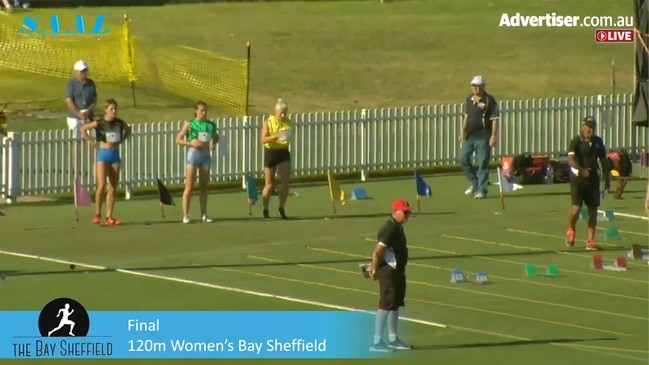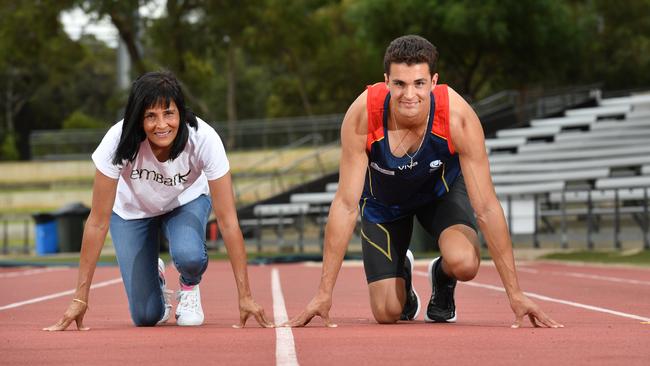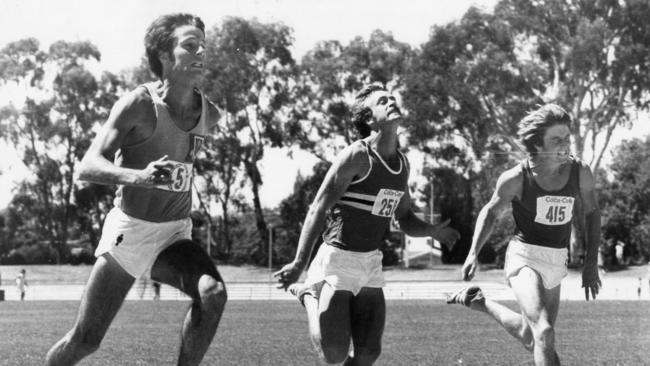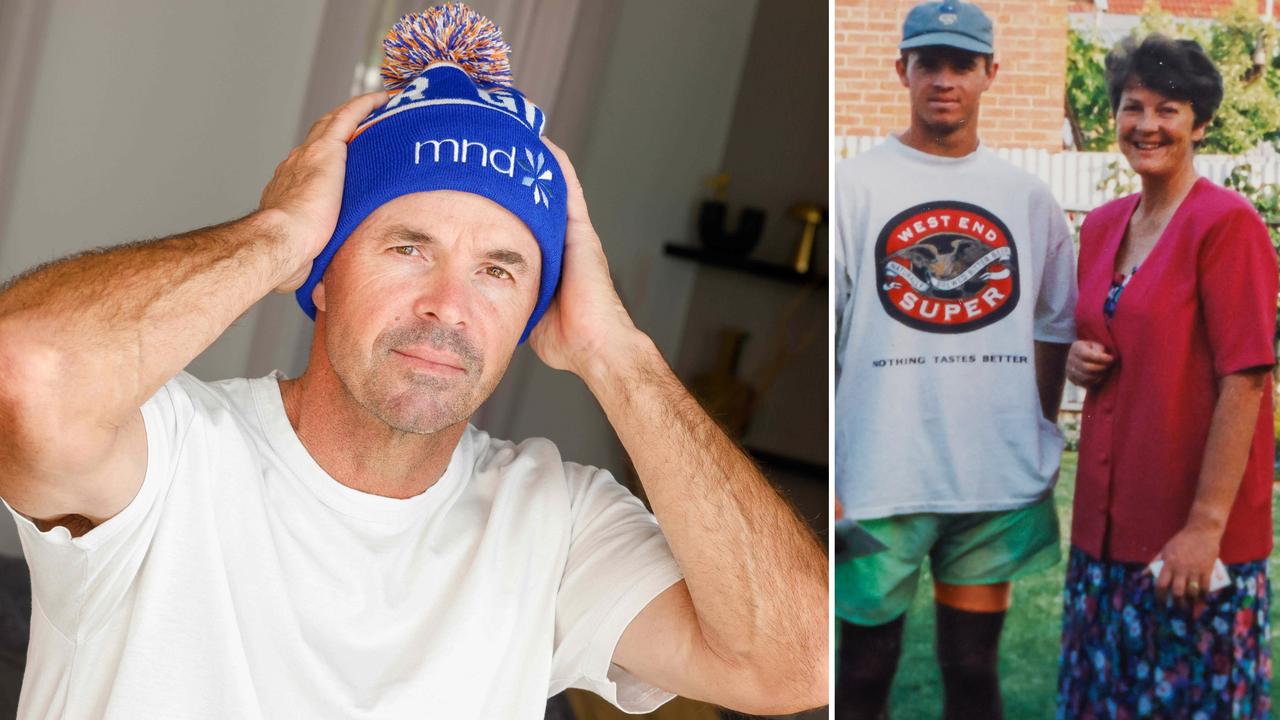The handicap system may be confusing — but it’s also exciting | Graham Cornes
There’s one key factor that makes the Bay Sheffield one of the most exciting events on our sporting calendar – even if it does confuse the outsiders, writes Graham Cornes.

Opinion
Don't miss out on the headlines from Opinion. Followed categories will be added to My News.
There is no more exciting, colourful, non-stop, free event in South Australia than the Bay Sheff.
Through wars, depressions, global financial crises and pandemics, the famous foot-race and the athletic festival that accompanies it has always been held.
When the two-day program gets under way on December 27, it will be for the 137th consecutive time.
It was initially held as part of South Australia’s Proclamation Day ceremonies – December 28 being the day Governor Hindmarsh landed at Holdfast Bay in 1836. While the fervour around such celebrations in 21st century Australia has been muted by the sensitivity to Indigenous Australians, the enthusiasm around the Bay Sheff has never waned.
Newspaper reports of that first day in 1887 said that 40,000 people flocked to Glenelg to witness the Bay Sheffield foot-race and accompanying festivities.
It was won by an H. Quinn, who pocketed 14 pounds as first prize – a significant amount in 1887.
The winner of each of the men’s and women’s events at this year’s race will win $16,000.
The nostalgia, romance, excitement and sentiment of the race has always impacted on me.
There has always been the envy and the regret of never having competed, never being confident enough to have a go, never being a fast enough runner.

They are a chosen few and there is an implied air of arrogance and superiority around sprinters. They may be the most modest and compassionate human beings, but they just seem, well, better than the rest of us.
Perhaps it’s part of the sprinter’s psyche to intimidate. The finely-tuned muscles are highlighted by the silks and the specialised running shoes. I once bought a pair of running shoes hoping to run. Made from a beautiful soft leather with the three Adidas stripes and those dangerous looking spikes, they should have inspired – but never were they raced in. Yet there was a simple pleasure in owning them.
Every year, the Bay Sheff uncovers some great personal stories of athletic adventure. Mandy Mason is 56 years old and, yes, the athletic carnival does have events for seniors and veterans of the sport, but Mandy is here for the open 120m main event.
She has dominated masters events and is recognised as the fastest 55-and-over athlete in the world, but according to Paul Young’s official form guide, she has a real chance of winning the women’s main event.
It would be an amazing achievement, given some of her competitors are 35-40 years younger than her.
Max Tracey is an American baseballer in Adelaide playing for the Adelaide Angels. Like most of these athletes, he has an interesting back story. He grew up in Atlanta, Georgia, where he was a star athlete at Norcross High School.
Originally, he was a quarterback on the football team, but with the constant threat of concussion, his enthusiasm for the game waned.
Then in 11th grade, he was inspired by one of the school’s coaches, a former Olympian, to take up athletics. Within no time at all he was ranked third in the state of Georgia.
He ran 10.6 seconds for the 100m and 21.9 for the 200m, and an athletic career seemed feasible.
That was until he broke his leg, and the fractures to those big bones stalled any athletic aspirations.
So he played baseball and didn’t think any more about serious running. Max’s father was from Clare, but moved to Melbourne in his work with General Electric.
He met Max’s mother, who was in Australia for a conference, so the US became home.
Max grew up in Atlanta, but his dual citizenship makes him an attractive prospect for local baseball teams.
He had no further athletics aspirations until his interest was awakened by a member his Adelaide Baseball Club, who told him about the Bay Sheff and the money to be won.
So he started running again, entered last year’s event and blitzed his heat in the 70m sprint. However, the unique rituals of Australian pro running, compared to the US college system, took him by surprise. Distracted and perhaps frustrated, he finished fourth in the final.
He’s a naturally quick athlete who cannot understand this handicap system. “We all should start on the same line, shouldn’t we?” he said. “I got beaten and my mark has been moved back. How does that happen?”
He’s not the only one confounded by the handicap system, but seems reconciled that he has to accept it.
He is a definite chance in the 70m final. He’ll have a baseball club barracking for him.
However, the Murphy siblings, Aidan and Melarn, are the ones who I’ll be watching most closely. Their father, Mark, is the production manager at FIVEaa and has no athletic background.
Those athletic genes come from their mother, Tania Van Heer, a Commonwealth Games gold and bronze medallist. Additionally, their grandfather, Tania’s father, was a sprint champion in the Royal Ceylon Navy, in those years before Ceylon became Sri Lanka.
Her childhood in Ceylon was, in some respects, idyllic, even though she and her sister sometimes had to leave home at 4.30am to make the school bus connections.
But the civil war erupted around them and even though their heritage was Dutch, Portugese and German, not Sinhalese or Tamil, the environment was not safe, so the family immigrated to Adelaide when Tania was 15.

It’s a long story of the immigrant kid slowly assimilating then dominating in her chosen sport of athletics and one that should inspire the Murphy kids.
Aidan is the Australian 200m record-holder, having broken Bruce Frayne’s record that stood for 41 years, and is the seventh-fastest Australian of all time.
Melarn is one of the favourites in the women’s event, having recently won the Crystal Brook classic.
Tania ran several times in the Bay Sheffield, but was always handicapped too far back to win.
Aidan and Melarn would be the first siblings to win the male and female Bay Sheffields in the same year, should they succeed.
There are always favourites in these events but the handicap system, as much as it is criticised, ensures uncertainty of outcome. It gives every competitor belief, however fanciful, that they could actually win.
The action at Colley Reserve is non-stop.
It’s sport at its purest and most exciting. And for those who have competed, or wished they had, it is certain to stir those nostalgic memories of youth. Unless you’re 56-year-old Mandy Mason – because she’s still doing it!





